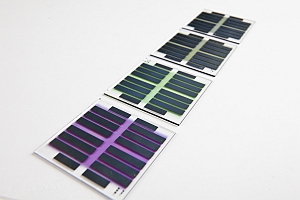The Belgian research institute Imec will lead a consortium of 17 European organizations and companies to develop a more commercially-viable organic photovoltaic technology. The X10D project, funded by the European Commission, aims to improve the efficiency of organic solar cells while retaining their low manufacturing costs.
Organic solar cells are made from low-cost polymers that can be applied to solar assemblies with common manufacturing methods similar to printing. This low-cost/high-throughput promise, however, is offset by lower efficiency in converting sunlight to electric power. This lower efficiency makes current organic solar technologies less competitive than silicon photovoltaics.
The X10D consortium aims to overcome these barriers with new designs and architectures, materials, and manufacturing technologies. The project seeks to increase the power conversion efficiency or organic solar to achieve at least a 12 percent conversion per cell, and 9 percent efficiency per module.
The project also set a goal to guarantee a minimum of lifetime of 20 years for organic solar modules on glass, and a 10 year lifetime for those printed on foil. In addition, the group aims to decrease the peak-pricing cost below 0.70 €/Watt ($US 0.95).
Participants include academic institutions, research centers, and large and small companies. The organizations represent the life cycle of organic photovoltaics, from nanotechnology and materials research to fabrication, manufacturing, and installation, from the U.K., Netherlands, Belgium, Germany, France, and Spain.
Read more: Solar Developer, Energy Lab Sign R&D Deal
* * *


 RSS - Posts
RSS - Posts
You must be logged in to post a comment.